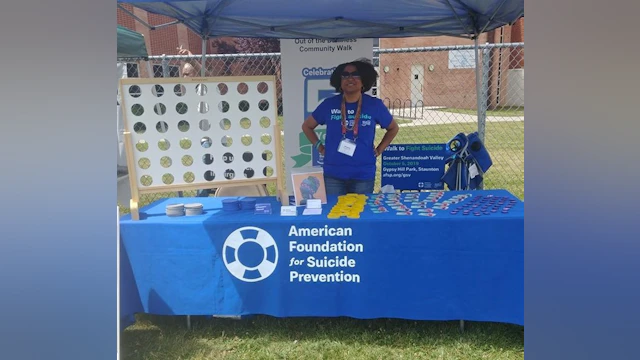Jul. 2, 2019 - Various dates exist on the calendar related to mental health, such as Mental Health Awareness Month in May, and National Suicide Prevention Week in September. Even more specific to my own background, July is Minority Mental Health Awareness Month. Yet there is not one single day in the year in which the word suicide does not come to my thoughts. My father and two of my brothers have been lost to suicide. These losses have highlighted for me some unspoken truths that exist in the African-American community: truths that prove that our message of prevention has to be both culturally aware and culturally sensitive.
As the mother of a teenage son, I have unfortunately had to teach my son that African-American men should be wary of openly expressing emotion, particularly anger, which can prove dangerous in the wrong setting, if misunderstood. In a world in which we are constantly seeing news stories in which black men are shot by police, African American families are put in a position in which they must in some ways encourage a suppression of emotion. The message this unfortunately sends is that it is better to be silent, even when under distress, and when a cry for help is necessary.
The African American community is traditionally rooted and built on faith. In some ways, this can act as a protective factor. Yet the vulnerability of struggling with depression, or having thoughts of suicide, can unfortunately be interpreted by some as the person lacking a belief in God: that reaching out for help indicates the individual doesn’t believe strongly enough that God can see them through.
There can also be a general sense, within our culture, that African-Americans are a “strong people” because we have endured so much in our past. Surely, we must be better able to endure the emotional hardships of this life than others. This sort of thinking, sometimes on an unconscious level, can discourage individuals from seeking help when they most need it.
As a volunteer for the American Foundation for Suicide Prevention, I feel the impact of these unspoken beliefs rooted deeply within my community whenever I set up a table of resources at a local event. In an environment in which many feel they cannot openly admit that mental health struggles are real, I notice people I know personally – who normally would stop and say hello –instead making eye contact, but purposely not breaking stride. I can see they are clearly hesitant to stop and ask questions, or pick up any information. Doing so would be an acknowledgment that someone in our community – possibly someone very close to them – could in that very moment benefit from the information and resources being offered to them. I often notice this same hesitancy in my community when I approach people about presenting suicide prevention education programs, such as Talk Saves Lives™.
I know there is a need for more understanding and openness around mental health in our community. How do we overcome this?
There are some strategies I’ve picked up to help open avenues of communication at community events like these.
One is to have fun. Offering hope – which is, after all, what we’re doing – should be a pleasant experience. Set up a game people can stop by and play. Bring bubbles for the little ones. Feel free to laugh. Laughter is contagious.
Share candy at your table, or a pen, or a button or some other small gift. This gives people an active excuse to stop by, if they would otherwise be reluctant.
Interact. Are there other organizations present with whom you can exchange information? Show an interest in whatever else is taking place in the community. Once people know you on a personal level – and that you also happen to be knowledgeable about what they might feel is a scary or heavy subject – it can help them realize it’s okay to ask questions, or even open up about their own experiences.
Finally, share your own personal story if an appropriate moment presents itself. What first connected you to the cause of suicide prevention and mental health? This kind of one-on-one interaction can lead to wonderful moments of connection and sincerity. And while the purpose may be to help someone else, I think you will find great personal strength will also arise for yourself in these moments.
Acknowledging the challenges that exist regarding mental health in the African American community is an important step in accomplishing AFSP’s mission of “saving lives and bringing hope to those affected by suicide.” Think about your audience, understand their cultural background, and consider what’s important to them and what makes them comfortable. By doing so, we can open up an important conversation, and save lives.
